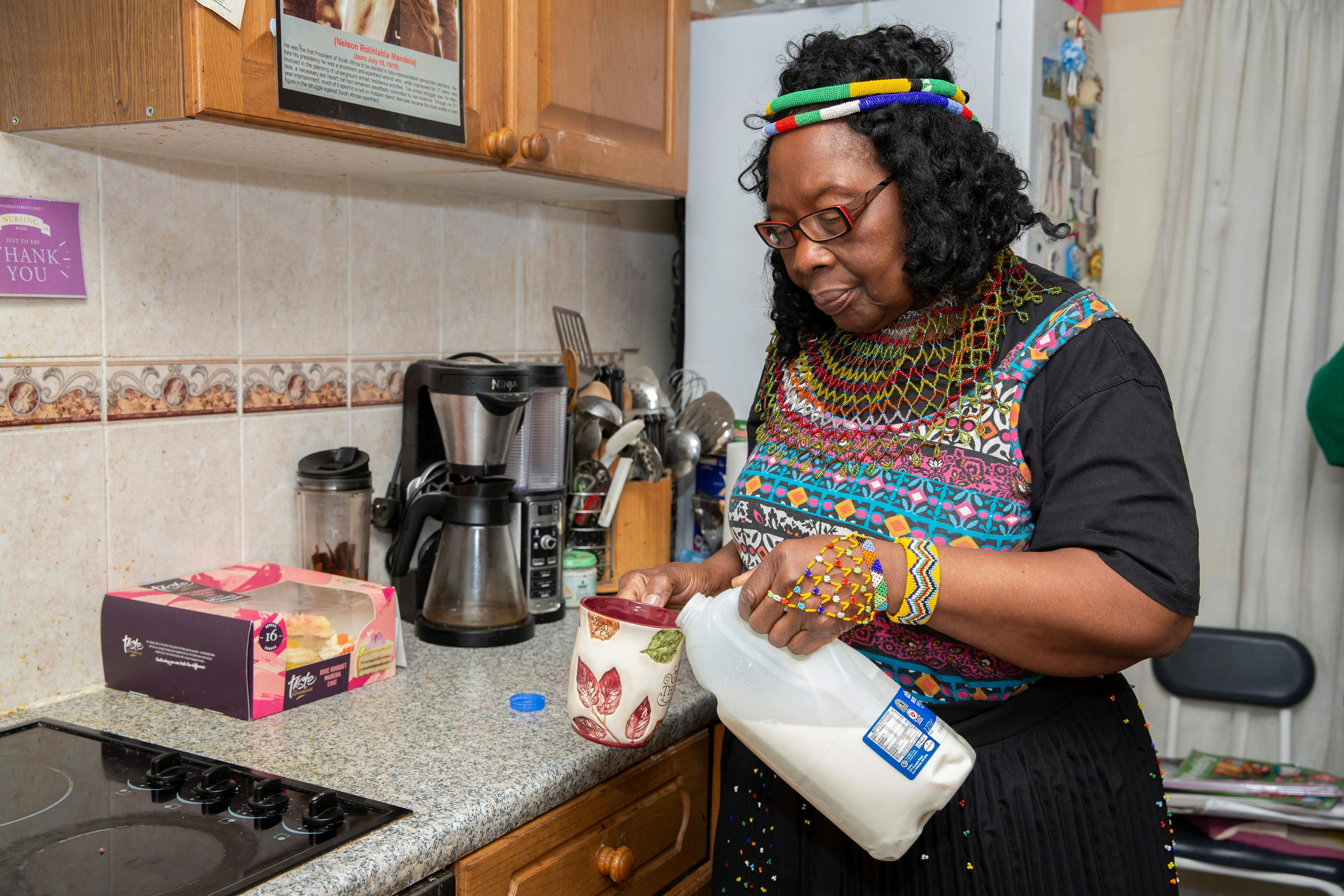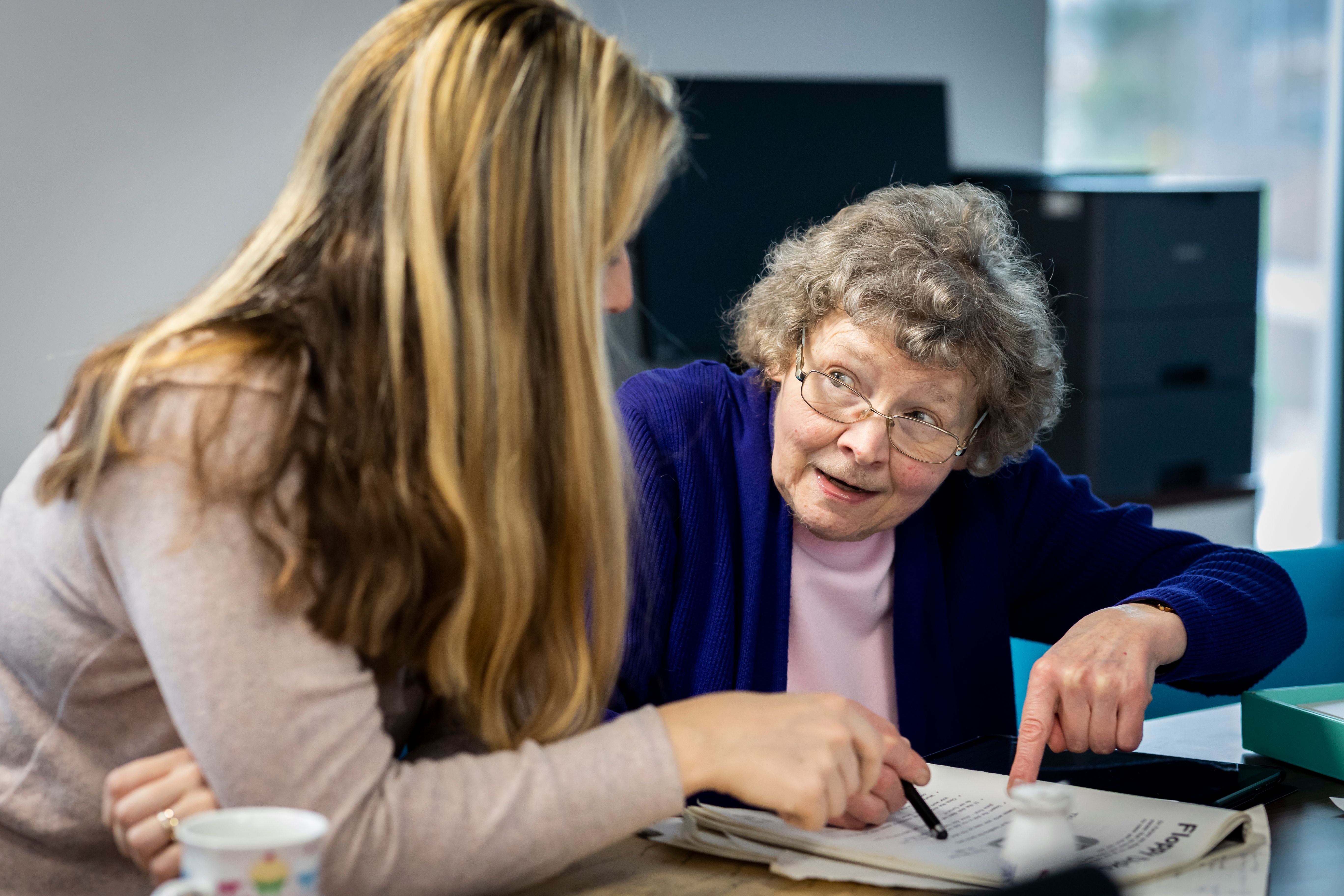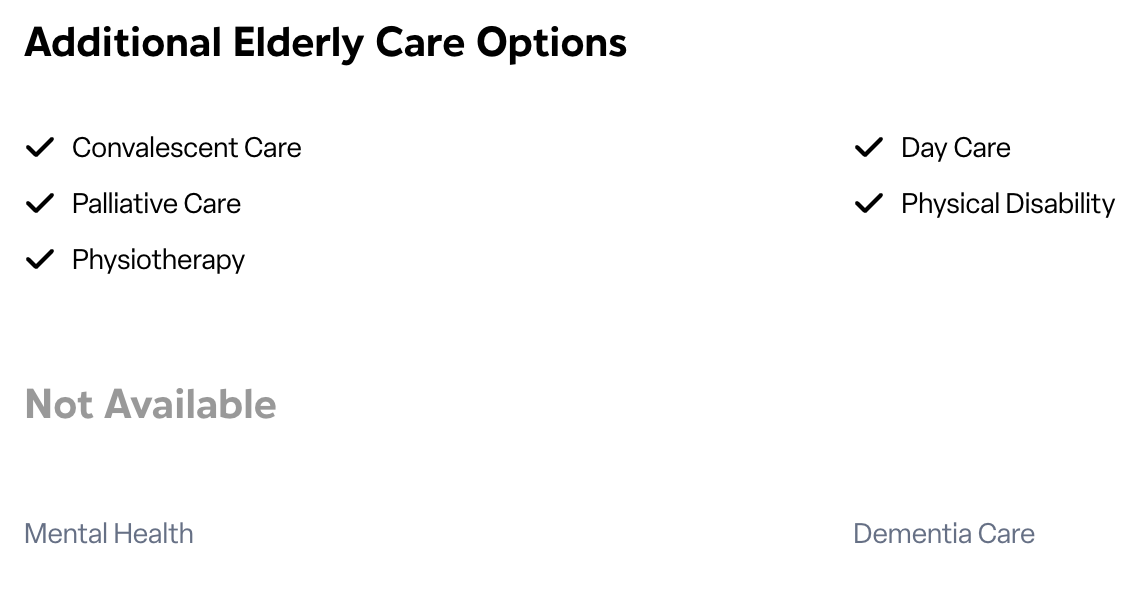Informal Carers - Key Facts & Support Available in 2025

Estimated Reading Time: 9 minutes
Although being an informal carer can undoubtedly be a fulfilling role, it can also impact your day-to-day life. Many informal and unpaid carers work full-time jobs as well, so finding the time to do everything may feel overwhelming.
That’s why we’ve created an article detailing everything informal carers need to know. This includes statistics around informal carers, how a care home can help, resources available, self-care and support businesses can provide.
Arrange care at home
Browse the best home care in your area.
In this article on carer support:
- What is an informal carer?
- The role of an informal carer
- Informal carer statistics
- The role of care homes in supporting informal carers
- Resources for informal carers
- Self-care for informal carers
- How businesses can support informal carers in the workplace
What is An Informal Carer?
An unpaid or informal carer is anybody who looks after a family member or friend who would find it difficult to cope without any extra support. They may need this support due to an injury, an illness, a disability or a mental health condition.
Most informal carers will also do some kind of paid work, meaning they’re juggling two separate jobs.
To be classed as an informal carer, you don’t have to live with the person you care for or be related to them.
The Role Of An Informal Carer
As an informal carer, the person you look after will often be a family member aged 65 and over, such as a parent or grandparent. Here, your loved one may need some daily support so they’re able to continue living independently. This support could span a few hours a week, or several hours each day.
If you’re an informal carer, you’ll support someone with:
- Preparing and cooking meals
- Tasks around the house like washing clothes and cleaning
- Shopping
- Picking up prescriptions
- Administering medication
- Providing transport to and from appointments
- Dealing with financial matters such as bills
- Running any other errands

Informal Carer Statistics
Informal carers across the UK are being left out of pocket by an average of £207 each month - or £2,494 per year, according to our latest research (June 2023).
This research highlights the everyday struggles experienced by informal carers, who provide vital care to their loved ones, alongside employment and other life commitments.
Their support, coupled with the responsibilities of often working full-time and juggling additional commitments, is taking its toll on unpaid carers, who are now facing a significant financial burden - coupled with mental health worries.
According to our research, the average unpaid carer is missing out on the equivalent of £2,494 a year due to the costs of caring - even with the additional benefit of receiving Carer’s Allowance. This includes expenses like travel, household bills and any equipment needed, which can quickly add up and take its toll, both financially and emotionally.
According to research from Carers UK, in 2021, there were almost 1.2 million unpaid carers aged 65 years and over in England and Wales (just over 1 in 10 of the older population), with almost half of these providing more than 50 hours of unpaid care a week. Unpaid carers also make up £193 billion of the UK’s social care system each year and are a fundamental part of the UK’s healthcare system.
Meanwhile, GOV.UK estimate that five million people in England and Wales provided some form of unpaid care in 2021. This was split as 4.7 million unpaid carers in England and 310,000 in Wales. In both cases, females provide a higher amount of unpaid care than males.
We’re calling for greater support and recognition for informal carers across the country who are providing continuous care for their loved ones, despite a country-wide cost-of-living crisis.
Alongside our new research on the financial hardship of being an informal carer, there’s been a surge of online searches from carers who are feeling trapped, burnt out and stressed by their new responsibilities.
Our analysis of carer’s online habits has found a surge of searches detailing mental health worries:*
| Search Term | How Much More Are People Searching For It? |
|---|---|
| ‘Feeling trapped caring for elderly parent | +3,800% |
| Carer exhaustion | +200% |
| Carer depression | +89% |
The Role of Care Homes in Supporting Informal Carers
If providing informal care becomes too much, care homes can look after your loved one in a compassionate and comfortable setting. 83% of respondents in our 2024 Care Seeker Survey took on unpaid caring responsibilities for their loved one before they later moved into a care home.
Within a respite care home, your loved one will be looked after on a short-term basis - often for a few weeks - while you rest and recuperate. Many carers go on a holiday while their loved one is cared for in a respite home.
Similarly, many of our care homes offer day care services. Here, your loved one will be cared for throughout the day. While spending time in an adult day care centre, there will be a range of social opportunities and activities to take part in, along with delicious hot meals and snacks.
Each of our care home listings includes whether or not day care services are available.

If your loved one would benefit from permanent care, a residential care home or nursing home may be the best option. In a residential home, your loved one’s personal care needs will be taken care of with dignity and respect on a daily basis, while nursing homes offer professional medical support by registered nurses.
Resources For Informal Carers
We’ve created several resources and articles which unpaid carers can use for further information and support:
Carer’s Allowance and getting a carer’s assessment.
Other benefits you can claim as a carer.
Practical and emotional support for carers.
We also have a guide breaking down the entire process of being a carer for a family member.
Here are some other amazing resources that carers should check out:
Self-Care For Informal Carers
As an informal carer, you may feel as though you have little time to spend on yourself. Looking after your own wellbeing is really important though! Here are some of our top tips for maintaining your emotional wellbeing and mental health:
Be realistic about your limits - Don’t take on too much. Otherwise, you may feel as though you never get anything done. Making a list of all your essential caregiving tasks and breaking these down into some kind of priority order should help with creating a daily schedule, ensuring you don’t commit to more than you can physically or emotionally manage
Accept help - Those around you may offer assistance where possible, and you should never feel embarrassed accepting this help. For example, another family member picking up a prescription on your behalf will free up some time in your week
Stay socially connected - Take time out of your week to speak with your friends and family members. Even if this is just going for a coffee, spending meaningful time with those closest to you and the person you care for will make a huge difference to your emotional wellbeing
Focus on your physical health as well - You should also spend time focusing on your physical health. Fitting some exercise - even if it’s just going for a walk - into your daily routine will help with sleeping, alleviating stress and generally improving your mood

How Businesses Can Support Informal Carers In the Workplace
Raise awareness of caregivers in the workplace
Caregivers are often deterred from disclosing their caregiving responsibilities, which places a strain on their wellbeing at work.
Simply being aware of caregiver needs is a huge step that bridges the gap between caregivers and their employers. Building a culture of support, empathy and awareness of employees with elderly care responsibilities encourages your staff to be open and communicate about their struggles.
As a leader in your workplace, take the time to listen, understand and empathise with any caregivers in your organisation. Ask questions in an open team meeting to hear how your employees feel and what type of support they need.
Learn to recognise the signs of caregiving stress
Positive mental health and wellbeing will lead to a more engaged and productive workforce. Caregiving stress is at an all-time high, so watch out for employees that seem frustrated, anxious or unproductive.
Recognising these signs can help you educate your team on stress management and offer a practical solution to the stress they’re experiencing. Encourage your staff to take regular breaks away from work and share any wellbeing resources your business offers.
Consider flexible working policies
In many ways, your caregiving workers have two jobs, so it’s important to make their lives as easy as possible. Flexible working is the business benefit at the top of almost every employee’s wish list, especially for unpaid carers of elderly relatives.
Offering caregivers flexibility at work can alleviate a lot of pressure for those who may need to help their elderly loved ones first thing in the morning or during the afternoon. You’ll also increase your team’s productivity while lowering their stress levels.
Implement policies to protect caregivers
By offering workplace support to employees who provide caregiving to loved ones, organisations can make a positive impact, helping them be more effective in both their professional and personal roles.
One of the best ways to support a caregiver at work is by providing practical support. Seniorcare by Lottie takes the stress away from those juggling care responsibilities and looking after an elderly relative. Opening the door for your employees to access resources can help them in their caregiving role and ultimately enable them to perform better at work.
Data Sources
*Internal analysis from Google Keyword Planner over the last 12 months – full data set is available on request.
Methodology
We sought to find the monthly and yearly cost of being an informal carer in the UK. We gathered data to estimate the cost of being a carer, with figures taken from the below sources to work out an average:
- ONS Census Data: % of unpaid carers in 2023 across the UK
- Numbeo: Average cost of living (excluding rent) in the UK
- Numbeo: Average cost of rent, single person, outside city centre (UK average)
- Numbeo: Average net salary (after tax - UK average)
- GOV UK: Carer’s Allowance (4 weekly amount)
We used the above data to calculate the cost of being a carer by working out a monthly average of the cost of living when providing informal care (and claiming Carer’s Allowance) and without caregiving responsibilities.
Loading FAQs...



